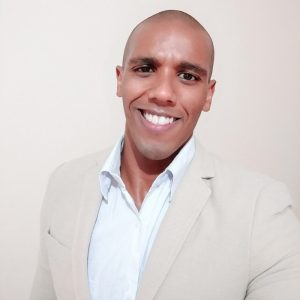
On April 8 of this year, doctoral student Roger Borges had a unique experience. He shared a (virtual) discussion table on the importance of science with 19 other students from Brazilian universities and with the scientist May-Britt Moser, who received the Nobel Prize in Medicine in 2014. Each student was able to ask the Nobelist a question. In another discussion table, another 20 students were able to interact with Serge Haroche, recipient of the Nobel Prize in Physics in 2012.
The discussions took place within the online event “O Valor da Ciência”, which was organized by the Brazilian Academy of Sciences (ABC) and the Nobel Prize Outreach (communication arm of the Nobel Foundation) with support from Instituto Serrapilheira, aimed at promoting reflections on the importance of science for society and public policies based on scientific knowledge. The event was broadcast on the official Nobel Prize channel on YouTube.
To participate in the event, Roger Borges went through a selection process. In the first stage, 90 public and private universities from all regions of Brazil indicated a total of 170 students to ABC. In the second phase, ABC selected the 40 young people who ultimately participated in the discussion tables.
Roger Borges (28 years old) is a member and secretary of the B-MRS University Chapter at the Brazilian Federal University of ABC (UFABC) since the creation of this unit, in 2019. Roger graduated in Science and Technology in 2016 and in Materials Engineering in 2020 – in both cases from UFABC. In 2018, he started a master’s course in Nanosciences and Advanced Materials at the same university, where he currently pursues doctorate in Nanosciences and Advanced Materials. Since his scientific initiation, he has been researching materials based on glass and glass-ceramics for biomedical applications. Both as an undergraduate student and in his doctorate, he has done research internships abroad, more precisely at the University of Idaho (USA), Alfred University (USA) and Politecnico di Torino (Italy). He is co-author of 17 articles published in peer review international journals and 6 book chapters.
Read our brief interview with Roger Borges.
B-MRS newsletter: Participating in a round table with a Nobel Prize winner and with students from different areas and different institutions/regions in Brazil is a unique experience. Comment what most impressed you about this experience.
Roger Borges: Without a doubt, this was a unique experience. Participating in an event with a Nobelist, broadcasted by The Nobel Prize was a great honor for my academic career. However, what most impressed me was the important role diversity played regarding the students chosen. There was gender, race, and regional diversity, as well as in the academic profile. Consequently, the range of questions was incredible! For example, some students from the Northern region asked questions more related to environmental issues, female students asked questions related to feminist issues, a black student asked about the importance of plurality in science, a journalism student asked about how to fight fake news. It is at this moment that the need for diversity in science becomes even more than explicit, as well as affirmative policies that favor this diversity. Society wins, science wins, everyone wins, and nobody loses! I believe that if the round table had no such diversity, it would not have been as successful as it was. In this regard, I congratulate ABC that was intentionally careful to guarantee the diversity of the round table. Having a Science Academy that has this vision is a source of pride for our Brazil.
B-MRS newsletter: At the discussion table with the scientist and Nobelist May-Britt Moser, you asked how international collaboration can reduce inequalities in science and innovation in developing countries. What are your thoughts today on the value of science, innovation and international collaboration?
Roger Borges: We live in an extremely unequal world, where not all countries enjoy equal opportunities for research and investment. I believe that science is the driving force of innovations that can reduce economic and social inequalities between different countries, while science is also the tool that supports implementing policies aimed at reducing these inequalities. This is the remarkable value of science: allowing us to live in a better world and giving us the means to move in this direction. Within this context, I see that reducing inequalities – be they of a scientific, economic or social nature – is everyone’s duty, that is, for the privileged and the least privileged. Thus, international collaboration is a mechanism that allows access to infrastructure and human resources training to those who do not enjoy the same opportunities; in addition to being a way to collaborate scientifically in order to develop innovations and policies that lead us to a more equitable world.
B-MRS newsletter: You participate in the B-MRS UC Program, you are a member of the Brazilian Association of Black Researchers (ABPN), you have participated in Brazilian student associations abroad. You probably think it is important to participate in peer groups. Comment a little on this question.
Roger Borges: I carry a thought that guides my actions: whoever writes the story decides what to give visibility to and what to drop into oblivion. When you get involved in a group/association that works for causes aimed at social and/or scientific development, you can contribute to this group and help write the story. It is at this point that you help to decide what to give visibility to. Thus, you can contribute to improvements, give your perspective, in short, help write the story in how you believe it would also be satisfying for others and for you. So, getting involved with groups and agendas that are important to us is the approach we find to make our contribution in an active and more effective way. Getting involved in what we believe is extremely important – and it is also very enriching! We learn a lot, get updated, it’s really an exchange that helps us become better people and professionals.
